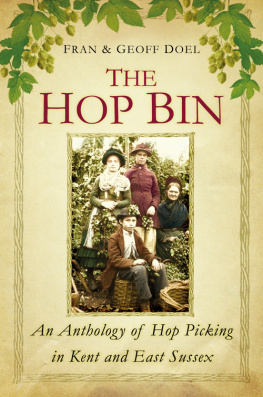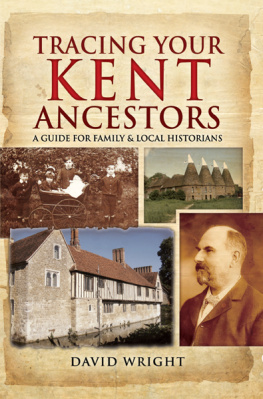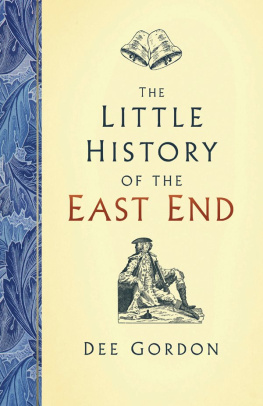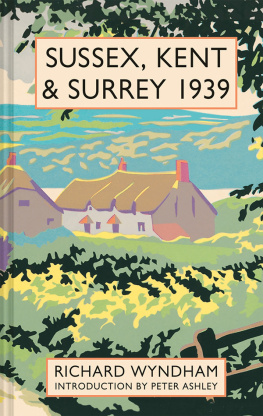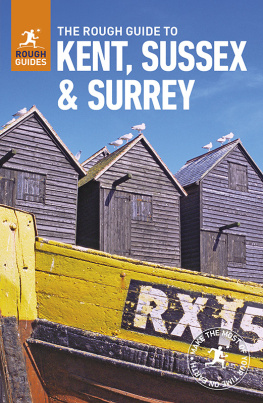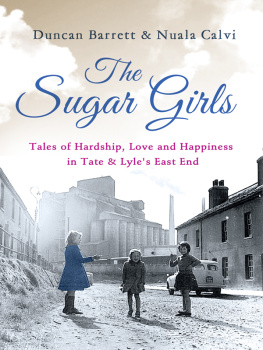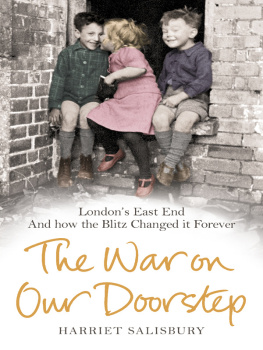
To Anne Hughes in grateful acknowledgement of
her inspirational articles in this book and of her
extensive contributions to Kent local history.
We are indebted to Anne Hughes who has generously allowed us to use substantial parts of her academic essay The Early Years of Hop Growing in Kent, her account of the hop pickers memorial service in Hadlow in 2003 and for the use of Alice Ransoms letter with her account of the Hartlake Bridge Disaster.
For permission to quote the extracts from George Orwells accounts of his hop-picking experiences we acknowledge the estate of the late Sonia Brownell Orwell and Martin Secker & Warburg Ltd.
Direct quotations from Vita Sackville-Wests Country Notes are Copyright Vita Sackville-West.
The extract from H.E. Batess The Blossoming World is reproduced by kind permission of Laurence Pollinger Ltd.
We should also like to thank the following for their help and contributions: Gael and Oliver Nash, John Lander, Bob Brown, Bob Kenward and Ken Thompson, and also our publishing team at The History Press: Nicola Guy, Declan Flynn, Emily Locke and Lucy Simpkin for the illustration .
C ONTENTS
Anne Hughes: | The Early Years of Hop Growing in Kent ( 2002 ) |
Chapter One |
Andrew Boorde (Borde): | A Dyetry of Health ( 1542 ) |
Thomas Tusser: | Five Hundred Pointes of Good Husbandrie ( 1557 ) |
William Harrison: | Description of England ( 1577 ) |
Reynolde Scot: | A Perfite Platforme of a Hoppe Garden () |
Chapter Two |
Gervase Markham: | The English Husbandman ( 1613 ) |
Nicholas Culpeper: | The Complete Herbal ( 1653 ) |
Celia Fiennes: | Through England on a Side Saddle in the Time of William and Mary ( c . 1690 ) |
Chapter Three |
Daniel Defoe: | A Tour through the whole island of Great Britain, divided into circuits or journies ( 1724 ) |
Song: | The Jovial Man of Kent (When Autumn Skies are Blue) |
Christopher Smart: | The Hop Garden ( 1752 ) |
Thomas Turner: | Diary for the Years 1754 |
Eighteenth-century Cookbook: | To Choose Hops |
Eighteenth-century Cookbook: | To Restore Musty Beer |
Song: | Hops: A New Song for the Year 1776 |
William Cobbett: | Rural Rides ( 1822 ) |
Chapter Four |
William Moy Thomas: | Hops from Household Words ( 1852 ) |
Fran & Geoff Doel: | Transport, Accommodation & Traditions |
John B. Marsh: | From Hops & Hopping ( 1892 ) |
The Drowning at Hartlake Bridge: | Account from the London Illustrated News ( 1853 ) |
John B. Marsh: | The Hartlake Bridge Disaster from Hops and Hopping ( 1892 ) |
Song: | Hartlake Bridge (Traditional Song from the Traveller Tradition) |
Alice Ransom: | Letter on the Hartlake Bridge Disaster of 1853 (Written 1984 ) Addressed to Mrs Anne Hughes |
Anne Hughes: | The Hop-Pickers Memorial Service, October 2003 , St Marys Church, Hadlow |
Song: | The Irish Hop Pole Puller (Traditional Folk Song from the Singing of George Pop Maynard of Copthorne ( 1872 1962 )) |
Chapter Five |
Jack London: | Hops and Hoppers from The People of the Abyss ( 1903 ) |
Rudyard Kipling: | Dymchurch Flit from Puck of Pooks Hill ( 1906 ) |
Edmund Blunden: | The Midnight Skaters from the Collection Poems of Many Years ( 1957 ) |
Sheila Kaye-Smith: | The Shepherd of Lattenden from Sussex Saints () |
Rules to Pickers | From the Beltring Whitbread Hop Farm ( 1930 s) |
George Orwell: | From Hop Picking ( 1931 ) |
Miles Sargent: | The Days Work from St Francis of the Hop-Fields ( 1933 ) |
Vita Sackville-West: | The Hop-Picking Season and The Garden and the Oast from Country Notes ( 1939 ) |
Ken Thompson: | Running a Hop Farm |
H.E. Bates: | From The Blossoming World ( 1971 ) |
Bob Kenward: | Songs About Hop-Picking |
Chapter Six |
John Lander (Hop Consultant): | Hops Past, Present & Future ( & 2013 ) |
Gael Nash: | Living on a Hop Farm ( 2013 ) |
Today the words beer and ale are often used interchangeably but historically they are not the same beverage. Until the thirteenth century the predominant drink of Northern Europe and for all classes was spiced ale, brewed with malt. Brewed on a domestic scale, ale was cloudy, sweet and nutritious, but did not keep and did not travel well without spoiling. The addition of an extra ingredient into ale the hop not only changed the taste, making it bitter, it helped to preserve the concoction much longer and stabilised it. By 1400 this new flavoursome drink, now labelled bier and later anglicised as beer, was being made on a commercial scale abroad and being imported into England, and proved so popular that by the 1440 s surveyors of ale brewers in London were replaced by surveyors of beer brewers. It seems that skilled Flemings and the Dutch made the good-quality beer, but that some London brewers were attempting to brew hop beer (though not always successfully) and were consequently being fined for the results.
We are fortunate today that the Internet gives us ready access to archivist material as some of our earliest English accounts on the cultivation and management of the hop garden in Kent date to the Tudor period. By the late Tudor period very large tracts of farmland in Kent had been successfully converted into hop gardens, the Kentish soil being peculiarly suited to the cultivation of hops. These manuals tell us that what a hop farm also required was plenty of combustibles (initially wood later charcoal) needed to fire the kilns which would dry the hops, as well as designated areas of land dedicated to the growth of ash or alder wood which would be used for the supporting hop-poles. The hops were initially trained by the mound method, that is planted in a small earth mound in which were inserted three small poles to each hill. The cost of setting up a new hop garden was considerable, particularly as the farmer needed to employ a large labour force to harvest the hops in his hop fields during the short picking season. However, many of the Kent farmers could apparently afford the high initial outlay and, with good husbandry, were able apparently to make their fortune.
Initially the harvesting of the hop was done by a local workforce later supplemented by workers from outside the area. The picking season in Kent started in early September and the harvesting could continue over a six-week period. Rain was a disaster as no money could be earned and the crop lost. From the beginning, farmers encouraged married women to be an important part of the labour force, permitting them to bring their children into the fields and to help with the picking.
Next page
